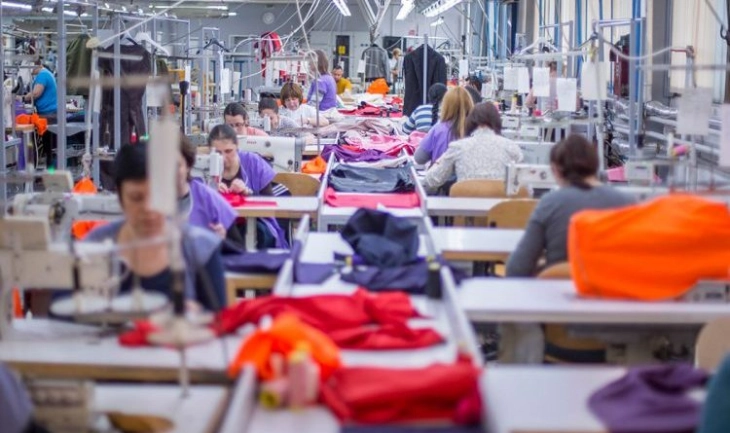German companies to promote ethical supply chains in North Macedonia, worldwide
- Post By Magdalena Reed
- 12:23, 14 June, 2022

Skopje, 14 June 2022 (MIA) — On Jan. 1, 2023, Germany will introduce a Law on Corporate Due Diligence in Supply Chains to regulate working conditions and workers' rights in foreign companies German companies work with, including companies in North Macedonia from the textile, metal, and electronics industries.
At a panel discussion to introduce the new legislation, representatives from the Delegation of the German Industry and Commerce, the Friedrich Ebert Foundation, and the Fair Wear Foundation said German companies will be bound by law to act responsibly and ethically toward their suppliers.
Biljana Sholakovska-Mihajlovska, the regional coordinator for Eastern Europe from the Fair Wear Foundation, said brands will need to take responsibility for the entire supply chain, which North Macedonia is part of, given that about 70 percent of the country’s textile production is for the German market.
According to Sholakovska-Mihajlovska, the goal of corporate responsibility is to provide optimal working conditions. The most critical categories in North Macedonia, she said, were the workers’ wages, overtime work pay, as well as safety and health protection at work.
“German buyers themselves will be legally bound to monitor and uphold human rights, especially labor rights, in international companies that work for them, including our country,” Sholakovska-Mihajlovska said.
She added that all German companies will have to make sure working conditions in their supply chain are up to European and international standards, in line with guidelines from the International Labor Organization, the OECD, and the United Nations.
Germany is the first European country to pass such a law, Sholakovska-Mihajlovska said, noting that France and the Scandinavian countries had legal frameworks that were not clear regarding universal declarations of human rights.
“However,” she said, “a proposal will be submitted to the European Commission to introduce this regulation across all member states of the European Union in a year or two. The German law, which will enter into force on Jan. 1, 2023, and the companies abiding by it will provide pilot guidelines on how to further define all legal frameworks.”
Patrick Martens, director of the Delegation of the German Industry and Commerce in North Macedonia, said the law primarily targeted companies in Germany that needed to reorganize their operations but it would also affect their international suppliers.
“German companies are now facing new challenges and new legal responsibilities,” Martens said, adding that the new German law also required that companies be informed whether labor and human rights were enforced by their suppliers or manufacturers.
According to Martens, working conditions in North Macedonia and the region were good and workers’ rights were upheld. mr/







